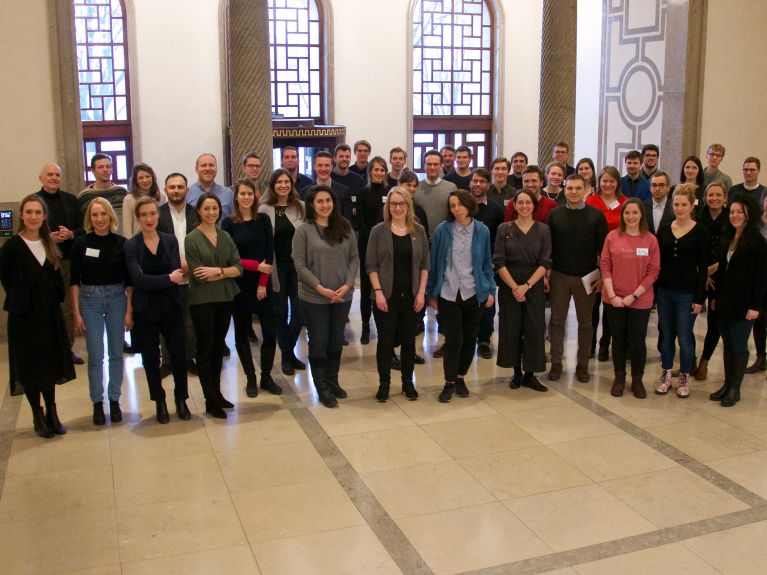Voices of the European Union
Making the value of the EU tangible in discussions with historical witnesses: writer Nora Bossong talks about the idea behind the Archive of Voices.

The European Archive of Voices aims to preserve history and make the value of the European Union tangible in conversations with witnesses of the past. Writer and founder Nora Bossong explains in an interview how the project came about – and why the archive is especially important now.
Ms Bossong, why did you help set up the European Archive of Voices?
The archive was preceded by Arbeit an Europa (Working on Europe), an association that Simon Strauss and I founded immediately after the Brexit referendum, a decision that left us stunned. We wanted to use it to get young Europeans talking to one another about Europe. In the process, we noticed that the European Union’s promise of peace is increasingly fading as the younger generation relate to it less and less. The Archive of Voices attempts to bring the generations of grandparents and grandchildren together to preserve history and bring it to life – and underline the immediacy of the European Union.
It is also important to listen to critics. This multidimensional approach presents a more authentic picture of the EU.
Fifty young Europeans discussed the EU with historical witnesses from their home countries. Most speak of the great value of the EU, but there are critical voices too.
Initially, we just wanted to collect ideas and present the broadest possible range of political views. I don’t believe that the European Union’s promise of prosperity alone or mobility and freedom of movement are enough. We are seeing a deep crisis of the EU; nationalist voices are growing louder. But if we make history more tangible, it will become clear what a great loss driving the EU project into the ground would be. We need to recognise once again the value of the EU’s promise of peace.
I am pleased about each voice expressing enthusiastic views on the EU. But it is also important to listen to critics. This multidimensional approach presents a more authentic picture of the EU. The critical voices are there – and by recording them we are also offering the opportunity to respond to them in an appropriate debate and at an appropriate pace.

How has the coronavirus pandemic changed the view of Europe?
At the beginning, the pandemic led to a great deal of nationalism – that was certainly no masterstroke, nor great public relations for the EU. Corona could become the ultimate challenge, because it might bring about the downfall of Europe – if we do not succeed in creating a renewed sense of community. This situation shows the urgency of speaking about the European Union as a bearer of hope.
Dieses YouTube-Video kann in einem neuen Tab abgespielt werden
YouTube öffnenThird party content
We use YouTube to embed content that may collect data about your activity. Please review the details and accept the service to see this content.
Open consent formThe Archive of Voices’ interviewees include creative artists and important voices in political debate. Who has made the greatest impression on you?
The now deceased theatre critic Irena Veisaitė from Lithuania, one of the few Lithuanian Holocaust survivors. She expressed herself very convincingly. She did indeed make history tangible. For example, she calls her hometown Kaunas a “place of shadow” under Nazi occupation. History gets really close up and personal here. Following the experience of her own childhood, Irena Veisaitė had a special view of the dangers of nationalism as well as the possibilities and limits of the promise of freedom. She shows in an exemplary way how historical experience and understanding the present are bound up together.
Nora Bossong is a German writer who was born in Bremen in 1982. She was nominated for the German Book Prize in 2019 and has been honoured, among other things, with the Peter Huchel Prize, the Berlin Art Prize, the Roswitha Prize and the Thomas Mann Prize. She actively supports European exchange and a women’s quota in Germany.
© www.deutschland.de



